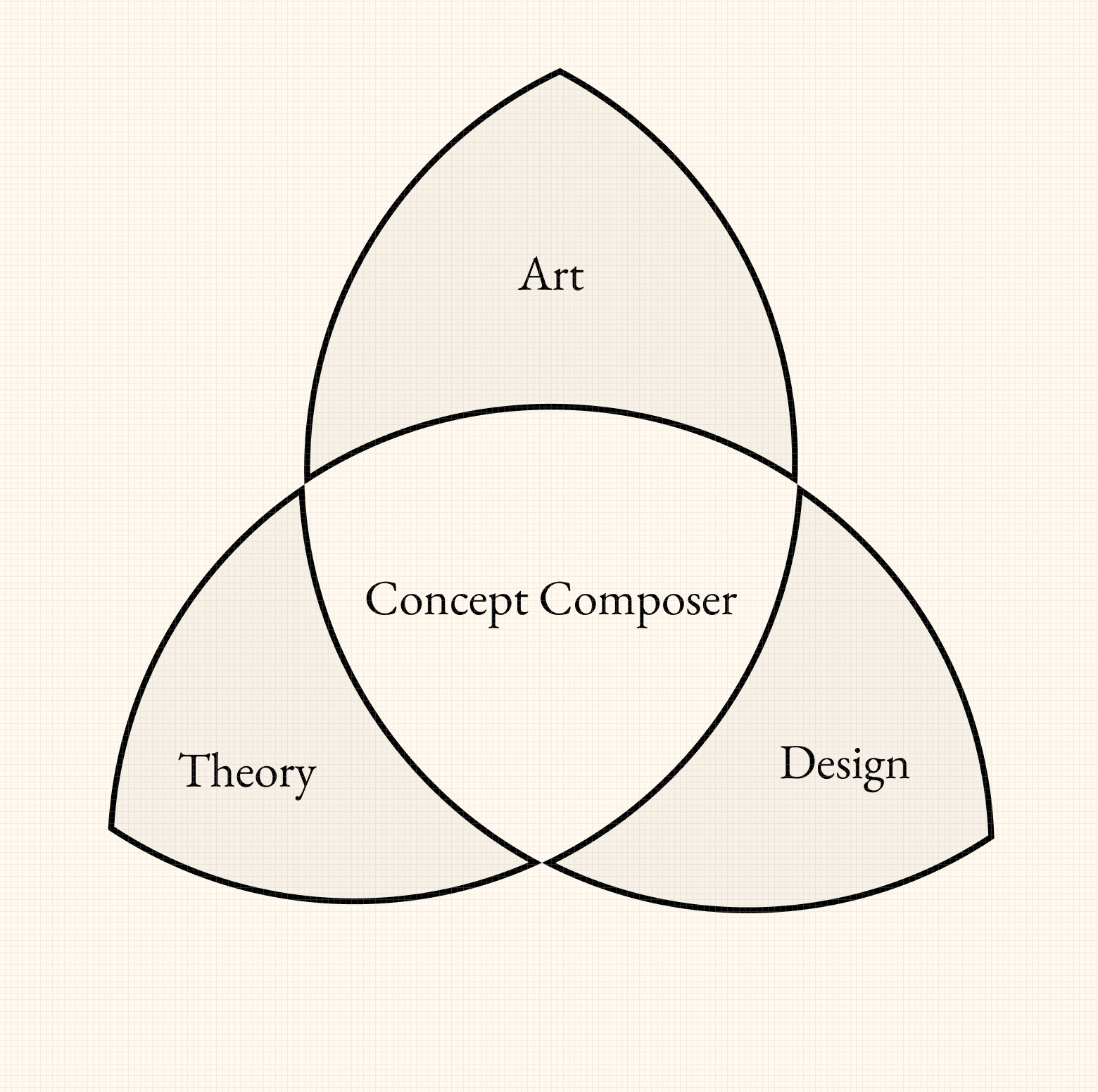From stage right enters a
Concept Composer
Someone who explores the form of an idea.
Concept Composers wade between exploring and documenting. Composing into the unknown, and making sense of new ideas. The practice is rooted in giving shape to theory and is nurtured by an abundance of curisoity.
Introduction
What’s a concept? What does composing mean to you? A concept (n.) is the form of an idea. To compose (v.) is to form a whole, creating or using smaller pieces, and arranging them into a larger composition.
When you think of composing, you may recall drafting an email or making a song. The truth is we’re always composing, because we’re always arranging. In writing it could be letters to form a word, words to form a sentence, or sentences to form an argument. With music it could be sounds that form a song. With design it could be components that form an interface. With this page, records of thought have been arranged to form a theory.

You can define your own blend of concept composing. We like to think of the practice as blending theory, art, and design. As a Concept Composer, you can help document novel thoughts, explore abundently, and divergently solve problems.
Tools
These activites support an infrastructure for how concepts can be composed, acknowledged, and maintained.
Adventure Poems
Before embarking on an explorational journey, take a couple minutes to write a poem. What you draft can have any particular focus; the goal of what you're exploring, the unknown aspects, how you're feeling today, or the potential you see in what you're about to explore. Be sure to timestamp it, as it's likely to age well after your explorations.
Structured Concepting
We're experimenting with the breakdown of a concept into three parts; mental models, explorations, and research. Watch the instructional recording to learn how to use the figma template. Note: To create prototypes, pull artboards out of the structure.
Exploration Charting
Map explorations to understand where you’ve been, where you are, and where you could head. These charts build up over time, providing context on how a process unfolded. They are best used as an ephemeral tool for moments of communication.
Concept Trust
Defer to a Concept Librarian's definition of a trust.
Practicing
The role of a Concept Composer is currently being practiced in two environments: